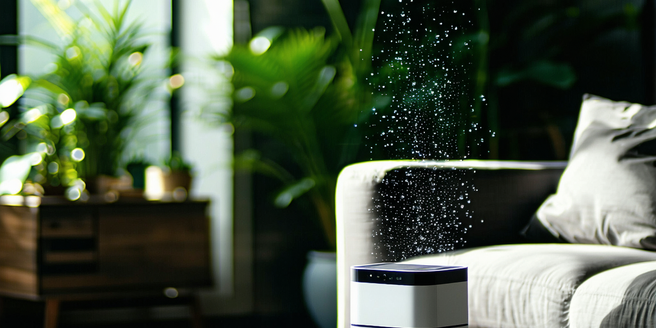
Understanding HEPA Filters: What They Are and How They Work
HEPA filters, or High Efficiency Particulate Air filters, are highly efficient in trapping microscopic particles. They work by using a dense mat of fibers to capture contaminants such as dust, pollen, and pet dander. To be classified as a HEPA filter, it must meet the stringent standards of removing at least 99.97% of particles that are 0.3 microns or larger in diameter. This exceptional performance is crucial for individuals with allergies or respiratory conditions. This is achieved through a combination of interception, impaction, and diffusion techniques that capture various sized particles as air passes through the filter. The filter’s effectiveness makes it a vital component in air purification systems used in both residential and commercial environments.
The Science Behind Airborne Contaminants and Filtration
Airborne contaminants encompass a range of particles and gases that can affect air quality. These include particulate matter like dust and pollen, volatile organic compounds, and biological pollutants such as bacteria. Filtration works by removing these contaminants from the air, reducing potential health risks. In certain environments, ultraviolet light is also used as a supplementary tool to neutralize some airborne pathogens. It is important to regularly maintain and replace filters to ensure their efficacy. HEPA filters, in particular, are designed to capture a high percentage of particulate matter, ensuring cleaner air. The filtration process is crucial for maintaining healthy indoor environments, especially in locations where outdoor pollution levels are high or where there are specific indoor pollution sources, such as in industrial settings or homes with pets.
Benefits of Using HEPA Filters for Indoor Environments
Using HEPA filters in indoor environments can drastically improve air quality by removing harmful particles. This is particularly beneficial for individuals with allergies or asthma, as it reduces triggers like dust, mold spores, and pet dander. As technology advances, HEPA filters are becoming more accessible and efficient, making them a viable option for a wider range of environments. Furthermore, the improved air quality can lead to better overall health, reducing respiratory issues and other health problems associated with poor indoor air. HEPA filters are also advantageous in environments such as hospitals and laboratories where sterile conditions are critical. The implementation of HEPA filtration helps in maintaining cleaner air, thereby promoting a healthier and more comfortable living or working space.
Comparing HEPA Filters to Other Air Filtration Technologies
HEPA filters are often compared with other filtration technologies such as activated carbon filters, ionic purifiers, and UV light sanitizers. While activated carbon filters are effective at removing odors and gaseous pollutants, they do not capture particulate matter as efficiently as HEPA filters. Ionic purifiers release charged particles to settle pollutants but can generate ozone as a byproduct. UV light sanitizers target microorganisms with ultraviolet radiation, but they do not remove particles. In many households, people prioritize using HEPA filters due to their reliability and comprehensive filtration capabilities. HEPA filters excel in removing a wide range of particles with no harmful byproducts, making them a superior choice in terms of safety and efficacy in air purification.
Tips for Maintaining and Replacing HEPA Filters in Your Home
Regular maintenance and timely replacement of HEPA filters ensure optimal performance. It’s important to check the manufacturer’s guidelines for replacement intervals, as overused filters can become clogged and inefficient. Signs that a filter may need replacing include reduced airflow and visible buildup of dust and debris. Neglecting to change the filter regularly can also compromise the air quality in your home. For optimal air quality, inspect your filter monthly and clean or replace it as recommended. Additionally, always follow safety precautions when handling and replacing filters to avoid any potential hazards. Vacuuming the surface of a non-disposable HEPA filter can extend its life. Regularly maintaining your air purification system will ensure it continues to provide clean, healthy air in your home.
